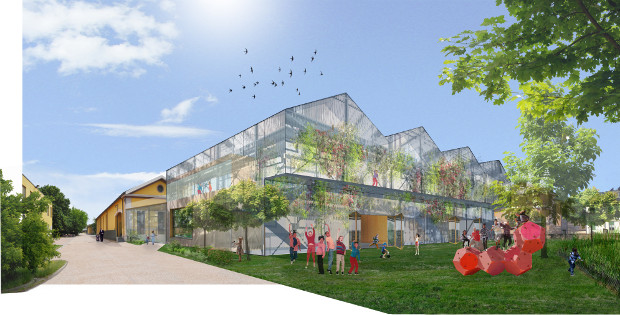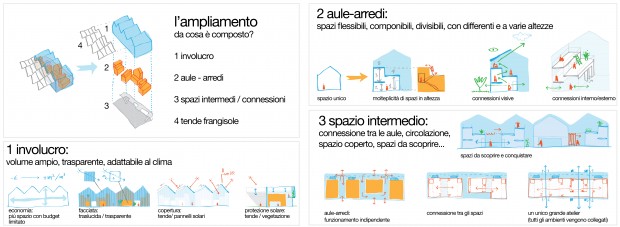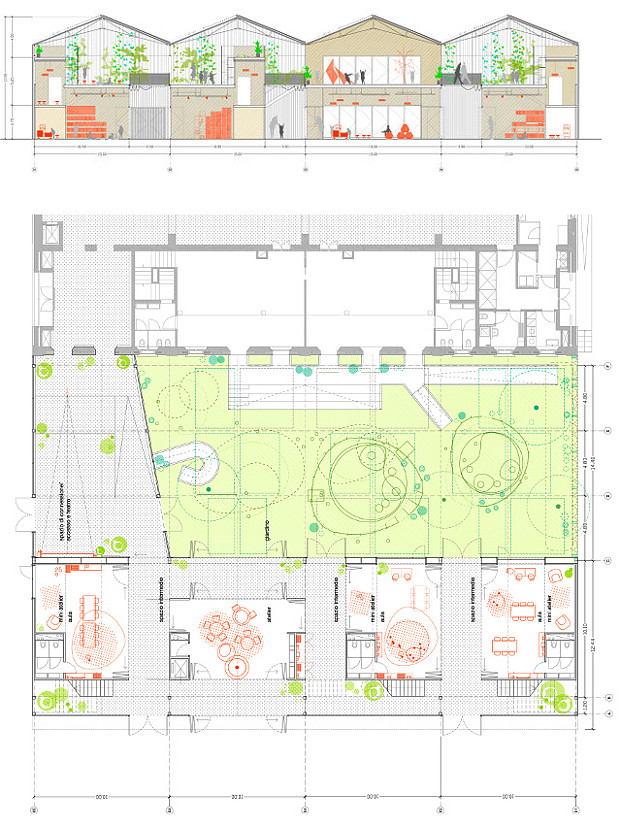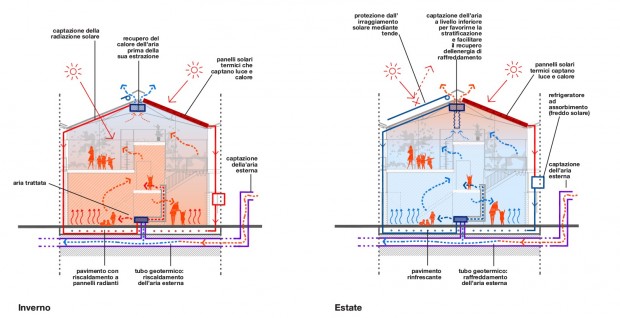On the 19th of October we will open the workshops URBANACCION with a lecture by Jaime Lerner. The workshops, which will take place in Casa Encendida, Madrid, will be run by Carlos Teixeira, Lara Almarcegui and Raumlabor. We want to open a space for debate and learning about new ways of understanding public space, in contrast to the currently established rules and ways of thinking and developing such spaces. A city like Madrid should reflect its special character through the energies coming from its citizens, the general comfort and the quality of its urban proposals. Not only do we understand that the streets must be periodically cleaned and guarded, but also that they must be the scene for the interaction between its inhabitants. This fact is even bigger in large cities where public space is in general the scene of the conflict.
The aim of the workshops is to reflect upon the urban environment, its needs, opportunities, agents and actors involved, proposition and capacity for acting. The goal is to create proposals that can be implemented. We want to give opportunities for urban projects sprung from urban communities, proposals for the improvement of their environment and collaboration with government bodies. Providing communities with tools for analysis and positive proposing action in terms of quality urban public space. Implementing the solutions created at the workshops on public spaces around Madrid city centre. To take part in the workshops send your c.v. urban accion is an event run by malashierbas, In-Constant and [ecosistema urbano].
⚐ EN
October 2, 2007
urbanaccion
Category: ⚐ EN
“eutv” (Ecosistema Urbano TV) goes ahead. At the office we are working on the design of a logo that will shortly be ready. Meanwhile, the collective task involved in defining the project goes on on the internet. So far, at the project website eutv.pbwiki.com we have registered a proposal by juan freire, which we find particularly interesting. Juan proposes developing a Ranking of cities to help publicising the project: Over the last few months a number of initiatives for comparing cities have come up, based on rankings that use different indices to quantify the degree in which cities are creative, green, sustainable, innovative… Despite these exercises being very criticisable for the methodology used as well as often for their consequences (sometimes they lead to a “city race” in which all cities want to be like each other), they generate great interest amongst politicians and the public, and they can have positive applications (they can point out weaknesses and define routes for change). In this project, work could be done with sustainability indices for Spanish cities, for example. A number of variables could be defined and the results could be compiled in a cooperative manner. These results could be published broadly and could be an instrument for making the project better known within the media, amongst politicians or the public. In a few days I will publish in Ciudades enredadas, a blog in ADN.es, a post with the analysis of different international city indices that have lately appeared in the media. It can be useful as a guide.
What do you think these indices could be?
The following headline in Spanish paper ELPAIS on 12th September has caught my attention:
“Biofuels don’t reduce CO2 emissions. This statement opens the interview of Chemistry Nobel Prize Winner Hartmut Michel. The interview questions the suitability of biofuel. I am not an expert, so I can simply recommend the article.
These are further extracts from the interview:
“to produce biofuel, such as ethanol, it is necessary to invest much energy in the shape of fertilizers, transport, as well as on distilling the alcohol. (…)Nearly as much energy is required as that later found in the ethanol. And if you obtain that energy from fossil fuel, you end up emitting more CO2 than you would if you simply used petrol in your car.”
“Biofuels are promoting the loss of tropical jungle in Indonesia, Malaysia, some regions in Africa and Brazil. In Brazil the issue is soya: more and more soya is being cultivated in the jungle. Burning up the jungle in order to produce soya liberats an enormous amount of carbon dioxide into the atmosphere.”
May 3, 2007
[ecosistema urbano] is an architecture and engineering team that focuses on the research and ecological design of new architecture projects that understand sustainable development as a resource for innovation and enthusiasm.
Its principle members have backgrounds in architecture and civil engineering from Madrid Polytechnic University, Istituto Universitario di Architettura di Venezia as well as the Bartlett School of Architecture at the University College London. They are design studio professors in the School of Architecture of Madrid and visiting professors at several universities in Spain and Latin America. They have received grants from more than ten public and private institutions.
They have received more than 15 awards since the year 2000 in national and international architecture design competitions. On the last year 2005, they have received top recognition for their work, including the European Acknowledgement Award from the Holcim Foundation for Sustainable Construction (Geneva, 2005) and the selection as one of the “Top ten spanish architects under 40” by the Antonio Camuñas Foundation.
Exhibitions of their work have been shown in several national and international institutions. Their work has been covered by the national and international press, television programs, and specialized publications (Holland, France, Portugal, Italy, Austria, Czech Republic, Slovenia, Chile, Colombia, Cuba, Canada, and USA).
Recently a monograph of their projects, entitled Monoespacios 8, was published by the Association of Architects of Madrid. Presently their work is being shown in the collective exposition FRESHMADRID (www.freshmadrid.com). Next they plan on showcasing one of their projects in an exposition by El Croquis Magazine.
Currently the team is involved in research projects about future paths of city design called “eco-techno-logical city”, financed by the Spanish Ministry of Industry. As for their latest project construction, they are building the second phase of the EcoBoulevard project in Madrid (pilot project of bioclimatic revitalization of a public space) and constructing the Meteorological Museum in the historical Buen Retiro Park in Madrid.
March 20, 2007
Three-day discussion meeting revolving around the theme of urban rememberance in reference to the casus of Warsaw.
The seminar will comprise the following elements:
– introduction to the subject of discussion in form of lectures on the specificity of Warsaw, delivered by Aaron Betsky and Jakub Szczęsny – the curators of the Festival – and invited guests (2 from Poland and 2 from abroad).
These preliminary lectures will take place in the three initial days of the Festival, each directly preceding the day’s discussion sessions.
Discussion sessions moderated by Aaron Betsky will be held in an open-participation formula for young architects from Poland and abroad.
The ambition is thus to provide a platform of intellectual exchange and a brainstorm-fed theoretical testing ground for fresh concepts for the future of Warsaw – to create a reservoir of ideas necessary for a major urban center in constant growth.
[ecosistema urbano] will take part in this event.
March 6, 2007
Lecture at the UCSD – San Diego
Category: ⚐ EN
Lecture at the University of California, San Diego.
February 13, 2007
Lecture at Yale University
Category: ⚐ EN
Lecture at Yale School of Architecture, Spring 2007 Lectures Series. more info.
Exhibition at COAC Barcelona
Category: ⚐ EN
[ecosistema urbano] exhibition opening at COAC Barcelona.
Lecture in Brussels
Category: ⚐ EN
Lecture at the CIVA in Brussels for the Architecture Marathon. Exhibition opening www.freshmadrid.com
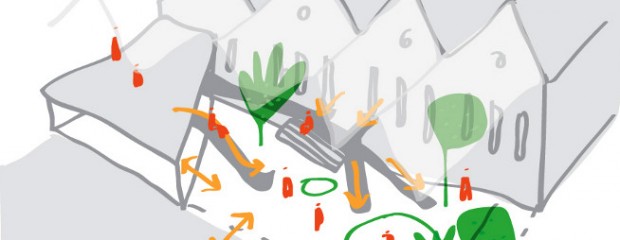
Last June, we shared in our blog we had been invited to participate in the competition for the design of an experimental center for early childhood education in Reggio Emilia (Italy).
The Reggio Children Foundation is a network of public schools for kids between birth and 11 years old in Reggio Emilia, a city where one third of the public budget is invested in education. During these months we have been working to develop the proposal, a laboratory-school where a new approach to children’s education is experimented, trying to make a proposal that would enhance the spirit of Reggio Children Foundation, their working method and philosophy, at the same time that addressing issues such as energy efficiency, sustainability, participation, etc.
It was very exciting to get a deeper knowledge of the “Reggio approach” and its learning methods, and experiment with the educational role of the spacial and urban space context. The Reggio Approach is an educational philosophy based on the image of the child, and of human beings, as possessing strong potentials for development and as a subject of rights who learns and grows in his relationships with others.
It is an honor for us to know that we have been winners of the competition, competing with extraordinary teams across Europe. The Reggio Children Foundation philosophy dovetails nicely with our own and we see the development of the proposal and the materialization of the solutions as a challenge we are willing to face.
Congratulations, Ecosistema!
We share an excerpt from the considerations of the jury:
“The proposed solution is the best suited to represent the new school concept, making the new building a new collective experiment. The building itself becomes an opportunity for comparison, on issues of sustainability and eco-backwards compatibility, making the children themselves active participants. The construction techniques proposed include a development which can be implemented over time, according to needs for teaching-learning related to the school’s teaching plan, which makes the construction of the building itself a community project, seen as a process rather than a point of arrival”.
